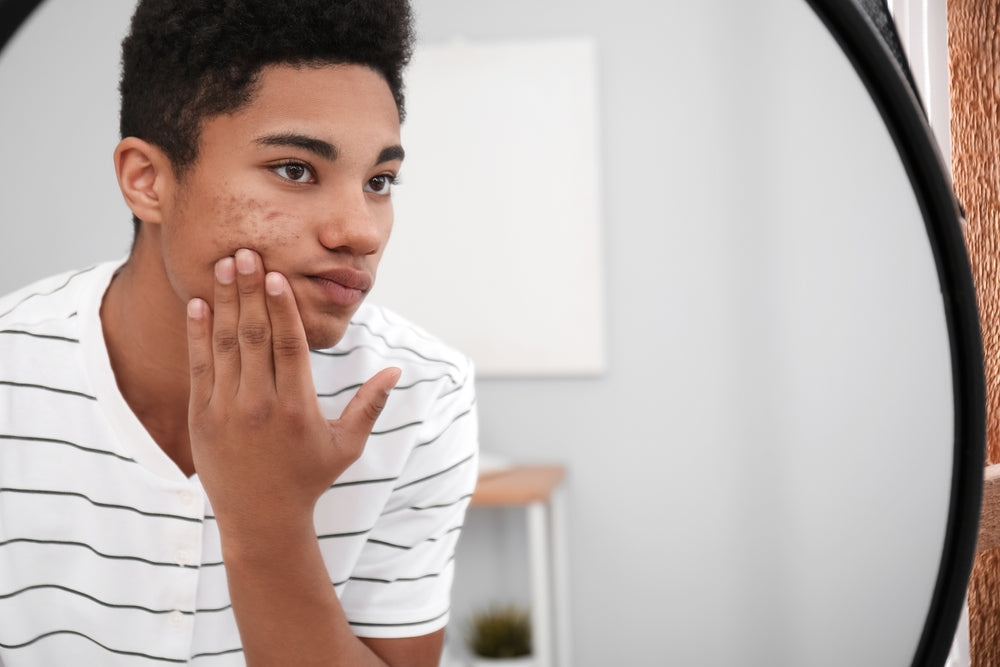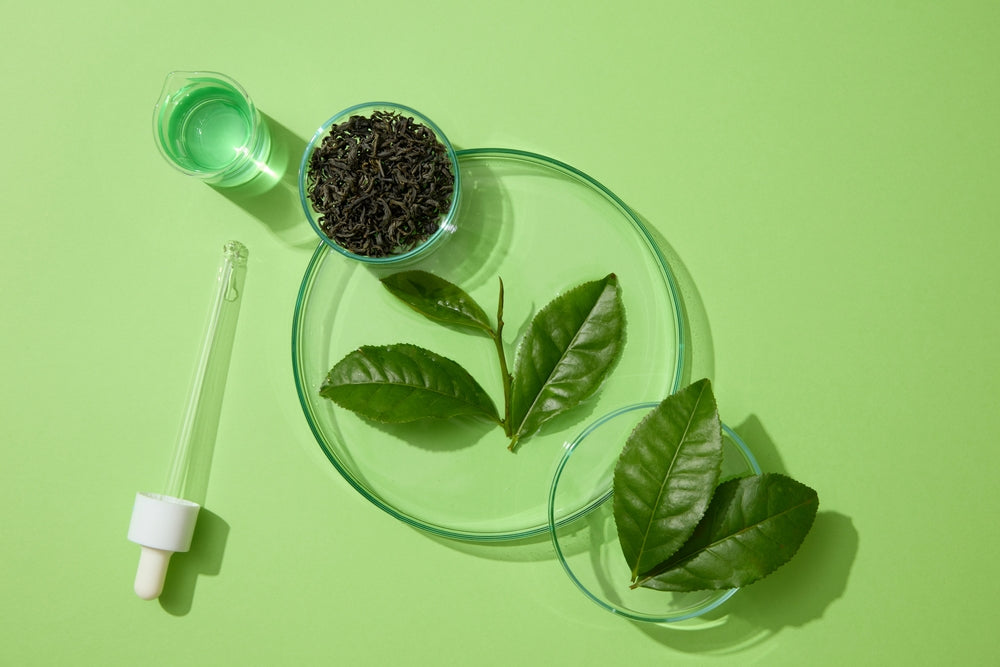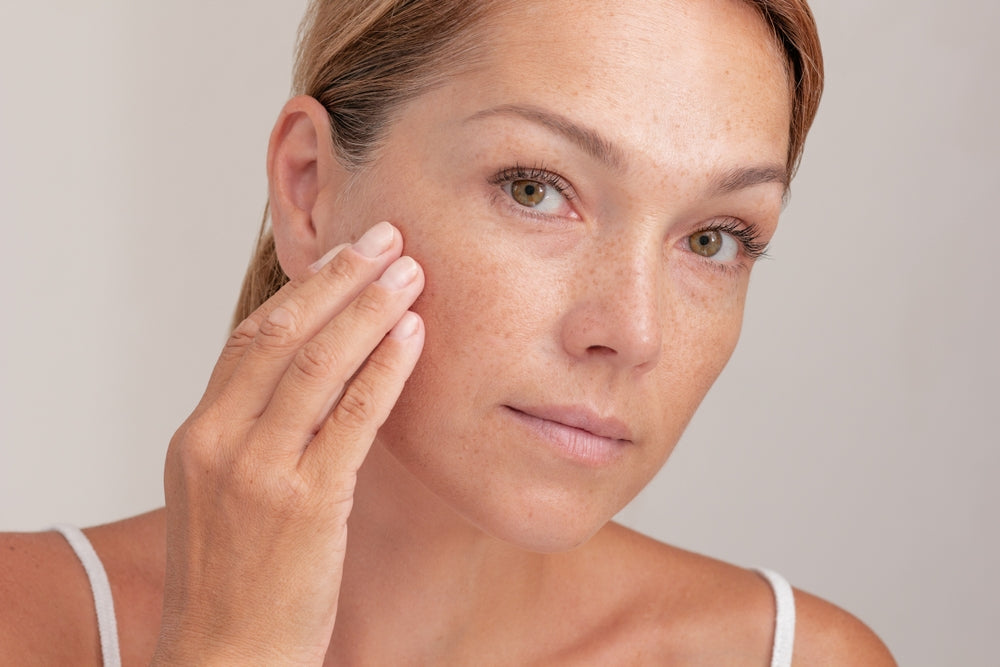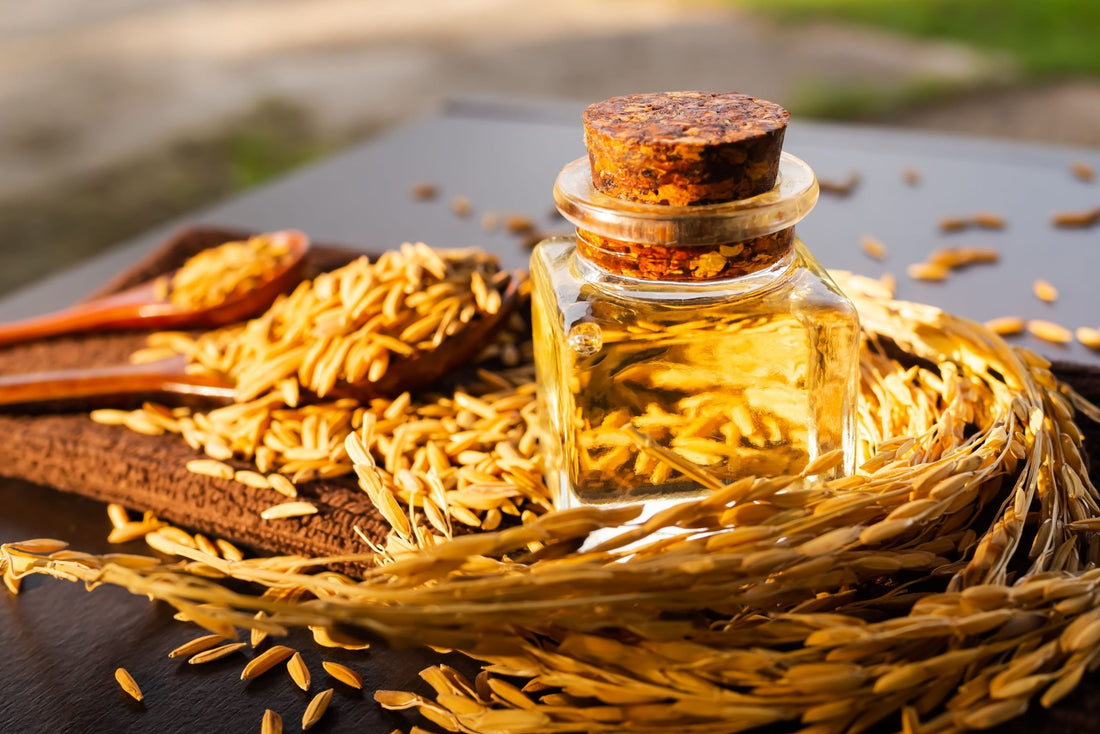Acne is an issue for both teens and adults. But while many teens see their acne improve as they go into adulthood, some people experience acne well into their adult years. While it’s unclear how long acne will last from person to person, there are plenty of skincare treatment options to help improve the appearance of your skin. At Epicuren Discovery, we have lots of skincare products to help with acne.
What is Teenage Acne?
Teenage acne is exactly what it sounds like. It’s acne— a common skin condition that includes pimples, cysts, whiteheads, or blackheads— that occurs during your teenage years. It can have a number of causes but whatever the reason, acne shows up because the pores are clogged with oil and bacteria which causes the skin to become inflamed and bumpy.
What is Adult Acne?
Adult acne, or post-adolescent acne, is acne that occurs after the age of 25. For the most part, the same factors that cause teenage acne are in play with adult acne. The skin is producing excess oil, the pores are becoming clogged with dirt, dead skin cells, and bacteria, and the skin becomes inflamed.
How are Teenage Acne and Adult Acne different?
The big difference between adult and teenage acne is the cause. Teenage acne usually occurs due to hormonal changes. While adult acne can show up because of hormonal changes, it most often appears due to diet, pollution, and medications.
Adult and teenage acne also appears in different places. Teenage acne typically appears in the T-zone, on the chest, and on the upper back. Adult acne tends to stick to the chin and jawline.
Adults with acne also tend to take longer to heal from breakouts. The skin’s cell turnover rate is slower for adults so it takes longer to heal. This can lead to acne scars that are difficult to treat. Because of the difference in the skin, adults and teens likely need different skincare and acne treatments.
What Causes Teenage Acne
The causes of teenage acne can be as different as the teens themselves. Some of the causes of teenage acne include:
Hormonal Changes During Puberty
During the teen years, major hormonal changes are occurring within the body. More specifically, the androgen hormones are going into overdrive and oil production increases significantly. With more oil, the pores are more likely to become clogged and lead to acne.
Heredity
Your risk of developing acne as a teen can also be genetic. If your parents had acne as teens, you’re more likely to have acne as one as well.
Stress
Stress can lead to several physical problems but while it may not directly cause acne, it can make already existing breakouts even worse. Stress causes an increase in cortisol levels which can stimulate the sebaceous glands and produce more oil (sebum) in the skin leading to breakouts. Stress can also limit how fast your wounds heal which can lead to breakouts that take longer to heal.
Beauty Products
Some beauty products and cosmetics can also lead to acne. Certain products clog your pores and lead to acne. Other products can cause dryness and irritation and that can lead to acne too.
While oily skin is well-known for having acne, overly dry skin can lead to acne too.
Products that dry out your skin can lead to bacteria forming in the skin’s cracks and flaky skin clogging the pores.
What Causes Adult Acne
Just like teen acne, there are a number of causes of adult acne as well. The causes include everything from pregnancy to diet to stress.
Pregnancy
The increase in hormones that occur when you’re pregnant can lead to acne. The higher progesterone and androgen levels can increase oil production in the skin and ultimately, make the skin more susceptible to acne.
That being said, the acne will likely clear up after you’ve given birth. Or at the very latest, after you’re done breastfeeding.
An Inflammatory Diet
Certain foods can cause inflammation in your body and affect how clear your skin is. Processed foods, sugar, and dairy can all be inflammatory in the body. Why is that the case? The more sugar you eat, the more insulin your body produces which boosts the production of androgen hormones. This can increase oil production and in turn, lead to acne.
A plant-based diet with high fiber is less likely to cause these reactions.
Food Allergies Or Sensitivities
Any foods that you’re allergic to or at least sensitive to can also cause inflammation and lead to redness and bumps on the skin.
Stress
Excessive stress can mess with your hormones which can lead to acne. On top of that, stress can lead you to neglect certain aspects of your health including a healthy diet or your normal skincare routine. When these aspects are neglected, acne can show up on the skin.
Beauty Products
Just like for teens, certain beauty products and cosmetics can also increase the risk of acne for adults as well. Some products can clog the pores, dry you out to the point of bacteria and dry skin clogging the pores, or irritate and inflame the skin enough that it brings on acne. This is why it’s important to take all your makeup off before going to bed and wash your face after you’ve been sweating.
Pollution
Pollution can also be a major risk factor for acne. It can land on the skin and clog your pores and once it’s trapped by the oil on the skin, it can lead to acne. The more pollution, the more likely you are to have a breakout.
Pollution has also been linked to an increase in oil production which increases the chances of having a breakout. It can also weaken the skin and make it more vulnerable to breakouts.
And on top of acne, pollution causes free radical damage which can age the skin at a faster rate.
Menopause (Pre & Post)
Menopause, as well as the time before and after menopause, bring on big hormonal changes which can lead to the development of acne. During this time, there are changes to the hormones and often hormone imbalances. You may experience an increase in androgens and a decrease in estrogen which can lead to acne, excess amounts of body hair, and baldness.
Does acne go away?
Unfortunately, the answer is: it depends. It varies depending on genetics, what time of life you’re in, if you’re around pollution, or dealing with chronic stress.
It can also come and go depending on where you are in your life, what your hormone levels are, and what beauty products you’re using. It’s important to figure out the cause of acne in order to address it.
Recommended Products for Acne
Epicuren Discovery has a full range of products that can be used to help diminish the appearance of acne. We offer a variety of cleansers, toners, serums, and masks.
Cleansers
Clarifying Cleanser
The Clarify Cleanser is a mild exfoliating gel that is great for cleansing teen skin. It’s best for normal, oily, and congested types of skin.
Herbal Cleanser
Our Herbal Cleanser formula is loaded with hydrators, antioxidants, B vitamins, and probiotics. It also includes a combination of plant-based surfactants and natural preservatives that will cleanse your skin and have it appear smooth and moisturized. It’s perfect for all adult skin types.
Citrus Herbal Cleanser
This Citrus Herbal Cleanser is sulfate-free and will dissolve any excess oil on the oily and combination skin of adults and teens. This can make it less prone to acne breakouts.
Toners
Clarify Exfoliating Astringent
Our Clarify Exfoliating Astringent gently exfoliates away dirt and excess oil making your skin less prone to acne. It’s great for teens with active acne.
Brazilian Propolis Mist
The Brazilian Propolis Mist blends bioflavonoids and Bee Propolis Extract. This solution provides the perfect conditions for healthy skin. It’s ideal for both adults and teens with problematic skin.
Rebalance And Rewind Vegan Collagen Toner
Our Rebalance and Rewind Vegan Collagen Toner is packed with antioxidants, plant-derived collagen, and alpha-hydroxy acids which exfoliate the skin and leave it looking moisturized. This toner is perfect for adults with sensitive skin who are looking to improve the appearance of fine lines.
Serums
Clarify Blemish Eraser
The Clarify Blemish Eraser is the perfect spot treatment for both adults and teens. It contains a combination of salicylic acid, cinnamon bark oil, tea tree oil, and aloe vera. It helps reduce the appearance of clogged pores and blemishes.
Microbiome Restorative All in One Serum
Epicuren Discovery’s Microbiome Restorative All in One Serum contains prebiotics, postbiotics, probiotic technology, antioxidants, skin brighteners, and humectants. They all work to achieve visibly healthy, balanced skin.
Moisture Surge
Moisture Surge Hyaluronic Acid is an oil-free, lightweight gel that moisturizes both teen and adult skin and leaves it to appear smooth and supple.
Masks
Clarify Polishing Mask
Our Clarify Polishing Mask has sulfur in it which can help with acne on normal skin and skin dealing with active breakouts. It also includes bentonite clay, tea tree oil, and Jojoba beads.
Bulgaricum Probiotic Powder Mask
Perfect for sensitive and rosacea-type acne, this mask contains probiotics that help promote visibly soft, smooth, and moisturized skin.
Chai Soy Mud Mask
Our Chai Soy Mud Mask reduces the appearance of clogged pores and excess oil. It contains bentonite clay and ginger root extract and is perfect for combination skin.
Volcanic Clay Mask
Rich in essential oils, the Volcanic Clay Mask is great for oily skin and for any visible inflammation caused by acne. It can soften the look of the skin.
Frequently Asked Questions
Is acne genetic?
The predisposition to acne is genetic. If both your parents have acne, you’ll most likely have it as well, but you’re not guaranteed to experience breakouts.
What is the difference between acne and pimples?
Pimples are a symptom of a condition while acne is the condition itself. Pimples can be a symptom of acne.
At what age is acne the worst?
When acne is the worst differs from person to person, but it’s often at its most problematic during the teen years.
Does acne go away naturally?
It depends on the person. Teens may see their acne disappear naturally as they go into their 20s, but others have acne well into adulthood and need treatment before the acne disappears.
References
VeryWell Health— Why Do I Have Teen Acne?
Hum Nutrition— What Age Does Acne Normally Go Away?
Stryx— At What Age Does Your Acne Go Away? How Long It Takes
American Academy of Dermatology Association— Caring For Your Skin In Menopause
John Hopkins— How Long Does Acne Last?
International Journal of Women’s Health— Menopausal Acne – Challenges And Solutions





